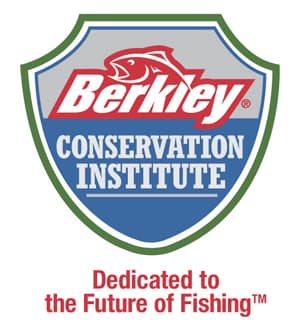Berkley Conservation Institute Congratulates the Environmental Protection Agency on Alaska Pebble Mine Action
OutdoorHub 03.04.14

Amid fevered protests against Alaska’s proposed Pebble Mine, which included opposition from the Berkley Conservation Institute (BCI), the Environmental Protection Agency (EPA) announced that it will now consider the Clean Water Act in its environmental review process of the proposed mine. The inclusion of the Clean Water Act is a critical step towards halting the Bristol Bay, Alaska, mining project, which, according to a 2013 EPA report, would forever damage a vital sockeye salmon fishery.
“The public interest is far more important than private profit in the case of the Pebble Mine proposal, which threatens a world class fish and wildlife resource,” said Jim Martin, Director of the Berkley Conservation Institute. “Renewable natural resource public benefits should be protected under the Clean Water Act. EPA got it right this time and Administrator Gina McCarthy is exactly the kind of leader we need in Government.”
EPA Administrator Gina McCarthy requested that the EPA include the Clean Water Act as a part of the environmental review process for the proposed open-pit, copper-mining operation following the agency’s receipt of numerous appeals and strongly voiced objections from BCI and an array of other concerned groups.
“”Bristol Bay is a highly valued world-class fishery that positively impacts thousands of jobs,” said John Doerr, CEO of Pure Fishing. “Unique fisheries like Bristol Bay have to be protected for future generations. The Pebble Mine project presents significant risks to both local, regional and national interests, there simply is too much at stake to allow the Pebble Mine project to move forward.”
Bristol Bay produces nearly 50 percent of the world’s wild sockeye salmon with runs averaging 37.5 million fish each year. The salmon runs are highly productive due to the exceptional water quality in streams and wetlands, which provide valuable salmon habitat. In addition to sockeye, Bristol Bay is also home to all five Pacific salmon species found in North America, as well as more than 20 other fish species; 190 bird species and more than 40 terrestrial mammal species, including bears, moose and caribou.
Mining the pebble deposit would involve excavation of a pit up to one mile deep and over 2.5 miles wide – the largest open pit ever constructed in North America. The pebble deposit is located at the headwaters of Nushagak and Kvichak rivers, which produce about half of the sockeye salmon in Bristol Bay.
The EPA press release announcing this decision can be found at: http://go.usa.gov/KcxW
BCI is a division of the Pure Fishing Company, the world’s largest tackle company headquartered in Columbia, SC. The brand names of Pure Fishing include Abu Garcia, All Star Rods, Berkley, Fenwick, Mitchell, Penn, Pflueger, Shakespeare, Spiderwire and Stren.

